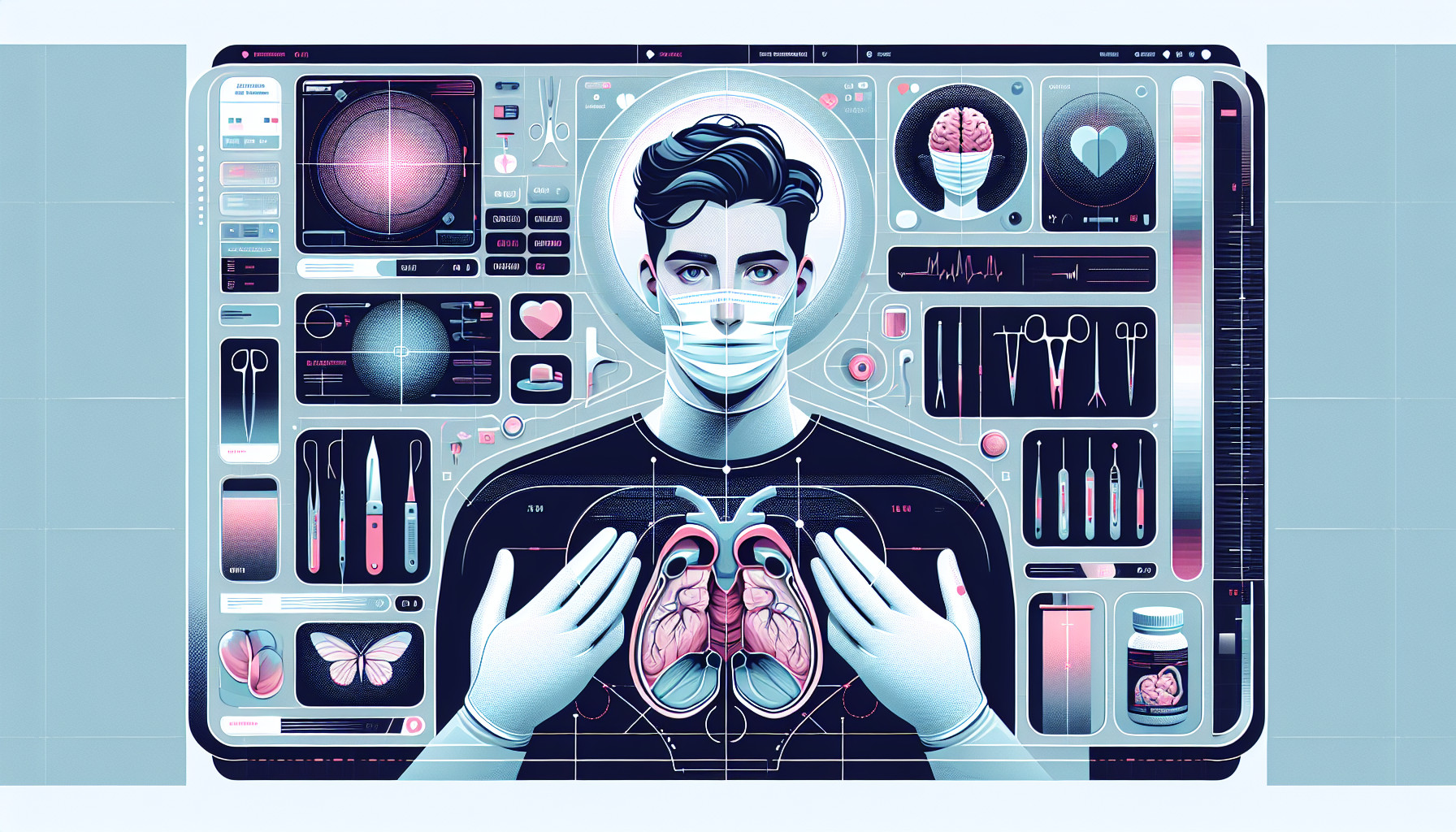Our Summary
This research paper is about a rare combination of three conditions: urethral duplication (UD), anorectal malformations (ARM), and occult spinal dysraphism (OSD). UD is a condition where the urethra, the tube through which urine leaves the body, is duplicated. ARM is a condition where the anus and rectum are not developed properly. OSD is a hidden spinal cord problem that can cause other issues.
The researchers looked back at medical records of five boys with UD and found that four of them also had ARM and OSD. All of these patients had their ARM corrected through surgery. In some cases, the symptoms of their other conditions worsened, so they had additional surgery.
The researchers concluded that doctors should consider the possibility of UD and OSD in patients with ARM. They also recommend that children with these combined conditions should be managed at a specialized medical center. The team noted that these patients might need help managing their bladder functions and that there should be a suspicion of a neurogenic bladder (a bladder dysfunction caused by nerve damage) in patients with OSD.
FAQs
- What is the relevance of this research on the combination of urethral duplication, anorectal malformations, and occult spinal dysraphism?
- What are the suggested treatment options for patients diagnosed with these three conditions?
- How does occult spinal dysraphism affect bladder functions according to the research findings?
Doctor’s Tip
A doctor might tell a patient undergoing detethering surgery that they may need additional surgery to correct any symptoms related to their other conditions, such as urethral duplication and anorectal malformations. It is important for patients with these combined conditions to be managed at a specialized medical center, where they can receive the proper care and support for their complex medical needs. Patients should also be aware that they may need help managing their bladder functions, and there should be a suspicion of a neurogenic bladder in patients with occult spinal dysraphism.
Suitable For
Patients who are typically recommended for detethering surgery are those with occult spinal dysraphism (OSD) and neurogenic bladder, as well as those with urethral duplication (UD) and anorectal malformations (ARM) who are experiencing worsening symptoms related to their conditions. Additionally, patients with a combination of these three conditions may also be recommended for detethering surgery to address their complex medical needs. It is important for these patients to be managed at a specialized medical center where they can receive comprehensive care and support for their unique healthcare needs.
Timeline
Before detethering surgery:
- Patients may experience symptoms related to their urinary and bowel functions due to the combination of UD, ARM, and OSD
- Patients may undergo surgery to correct their ARM, which can sometimes worsen symptoms related to their other conditions
- Patients may require additional surgeries to address the symptoms of their other conditions
After detethering surgery:
- Patients may experience improvements in their urinary and bowel functions following detethering surgery
- Patients may require ongoing management of their bladder functions, especially if they have a neurogenic bladder
- Patients may benefit from being treated at a specialized medical center to address the complex nature of their conditions
What to Ask Your Doctor
- What is detethering surgery and how does it help with managing occult spinal dysraphism (OSD)?
- What are the risks and potential complications associated with detethering surgery?
- How will detethering surgery impact my child’s bladder function and overall quality of life?
- Are there any long-term effects or implications of detethering surgery that we should be aware of?
- How experienced are you and your team in performing detethering surgery for patients with urethral duplication, anorectal malformations, and occult spinal dysraphism?
- What is the recovery process like after detethering surgery and what kind of post-operative care will be needed?
- Are there any alternative treatment options or therapies that we should consider before opting for detethering surgery?
- How often will follow-up appointments be needed after detethering surgery and what should we expect during these visits?
- Are there any lifestyle changes or accommodations that will need to be made after detethering surgery to ensure the best possible outcome for my child?
- Can you provide us with more information or resources about detethering surgery and the management of urethral duplication, anorectal malformations, and occult spinal dysraphism?
Reference
Authors: Lena F, Pellegrino C, Zaccara AM, Capitanucci ML, Esposito G, Iacobelli BD, Longo D, Caldaro T, Bruno D, Bevilacqua F, Santato F, Lucignani G, Marras CE, Castelli E, Bagolan P, Mosiello G. Journal: Pediatr Surg Int. 2022 Oct;38(10):1487-1494. doi: 10.1007/s00383-022-05186-z. Epub 2022 Jul 26. PMID: 35882671
